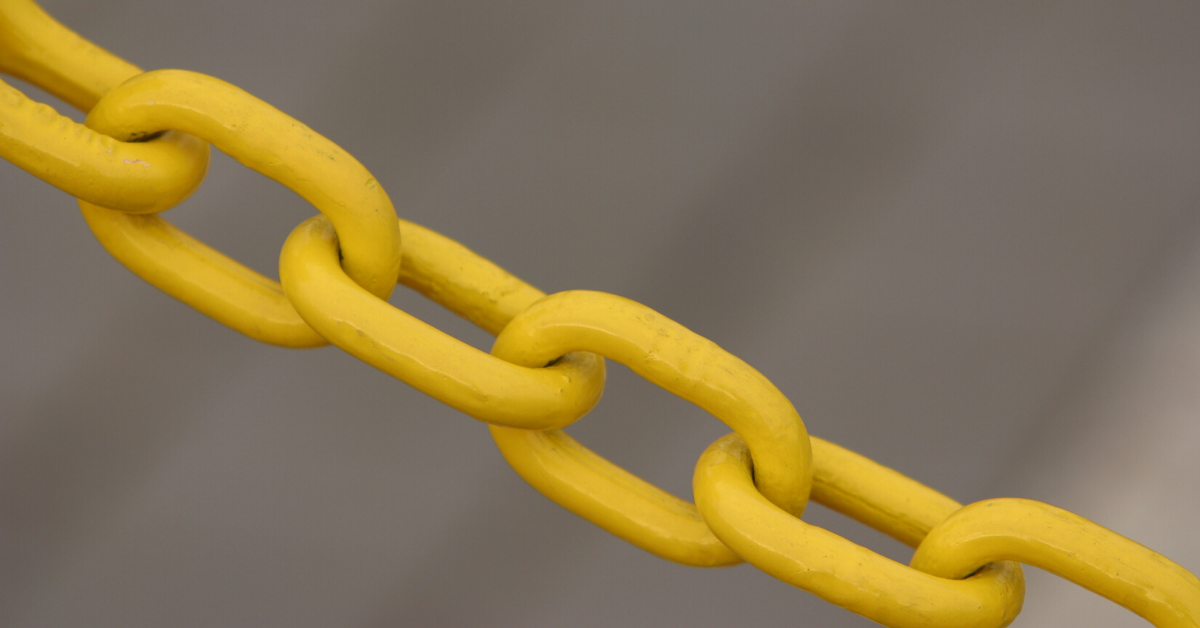Yandex’s relationship with links has been, in my opinion, a lot more public than the relationship between Google and links.
Yandex’s relationship with links can be best explored through three key events:
- 2005 Nepot Filter
- 2013/14 Ranking Without Links
- 2015 Minusinsk Algorithm
In 2008, data also suggest a change made to the algorithm around how links were being processed.
Yandex has also been public in that the number of heavy link-related factors in their algorithm has decreased considerably over the years, and it’s not as simple as spinning up content and throwing links at it.
Yandex Link Algorithms & Impacts
The Nepot Filter
The Nepot Filter (unofficial name) was Yandex’s first (noted) foray into weighing the impact of good and bad links as part of it’s ranking process for individual websites.
This was in response to the increasing volumes of link exchanges and PBNs, where link volume was used to judge search rankings (similar to a pre-Penguin Google).
Rather than link quality, this filter imposed a penalty on the links themselves and specifically sought out websites that acquired big volumes of unnatural links in short spaces of time.
Ranking Without Links
Towards the end of 2013/2014 Yandex trialed a version of its algorithm which didn’t take into account links as a factor (for commercial queries in the Moscow region).
From their own analysis of all the links in Russia, they determined that 74% of the links were paid links, so in the words of Alexander Sadovsky:
When we removed the links from our ranking formula, we hoped that people would stop buying links and focus on improving their sites, but we didn’t see the effect of it coming fast enough. After one year the amount of paid links only decreased by 14%. With this speed we would have to wait for five or more years until paid links would disappear.
The Minusinsk Update
A year later, Yandex released the Minusinsk algorithm – but before they did, they sent out messages to webmasters notifying them of an upcoming algorithmic update and that paid links would fall foul.
About 37% of selected websites for the first wave of Minusinsk removed their paid links.
Other webmasters who didn’t get a direct notification, but got wind of the update and penalty also removed their links – so Minusinsk had both teeth, and gained a reputation quickly.
For comparative purposes, Minusinks was/is Yandex’s Penguin.
Yandex Links FAQ
The below FAQ has been collated from a number of sources including the Yandex search term, previous Yandex interviews, trusted blogs, and Yandex’s own literature and blogs.
How does Yanded identify paid backlinks?
Through machine learning, Yandex processes a number of factors and makes comparisons to learning sets including known PBNs and link farms, sites that sell links, paid for links (by engineers), and some good, natural links.
Can Yandex identify unnatural link patterns easily?
Yandex is able to learn and identify paid-for link patterns based on factors such as link source and destination, the age of the link, the age of the link versus the age of the original content (retrospective blog links), the anchor text, frequency and variance of outbound links from the destination website, and velocity of new links to the destination website.
When a link penalty has been lifted, will the website get it’s old ranking positions back?
As confirmed by Yandex, and from experience. No.
People should get used to the thought that paid links are evil, and the evil is punished not for one day, but for a longer time.
Sites can be limited within rankings for months after a link penalty has been lifted. Kind of like doing jail time under the penalty, and then strict probation on release.
Can Yandex identify natural black hat links, versus negative SEO?
Yandex claims their machine learning can determine that if a paid link has been live for a long time, and paid links acquired over a sustained period of time – it’s likely they are known and purposeful from the site owner – which is what Minusinsk targeted.
Negative SEO backlinks tend to come in shorter, more aggressive bursts and not the regular patterns of “link building”.
Can you rank for competitive terms in traffic driving positions without links at all?
The short answer to this is yes. There are hundreds of factors in Yandex’s algorithm, plus the strong AI and ML factors from Vega et al, so it is possible depending on the niche, topic, competition, and query.








Leave a Reply